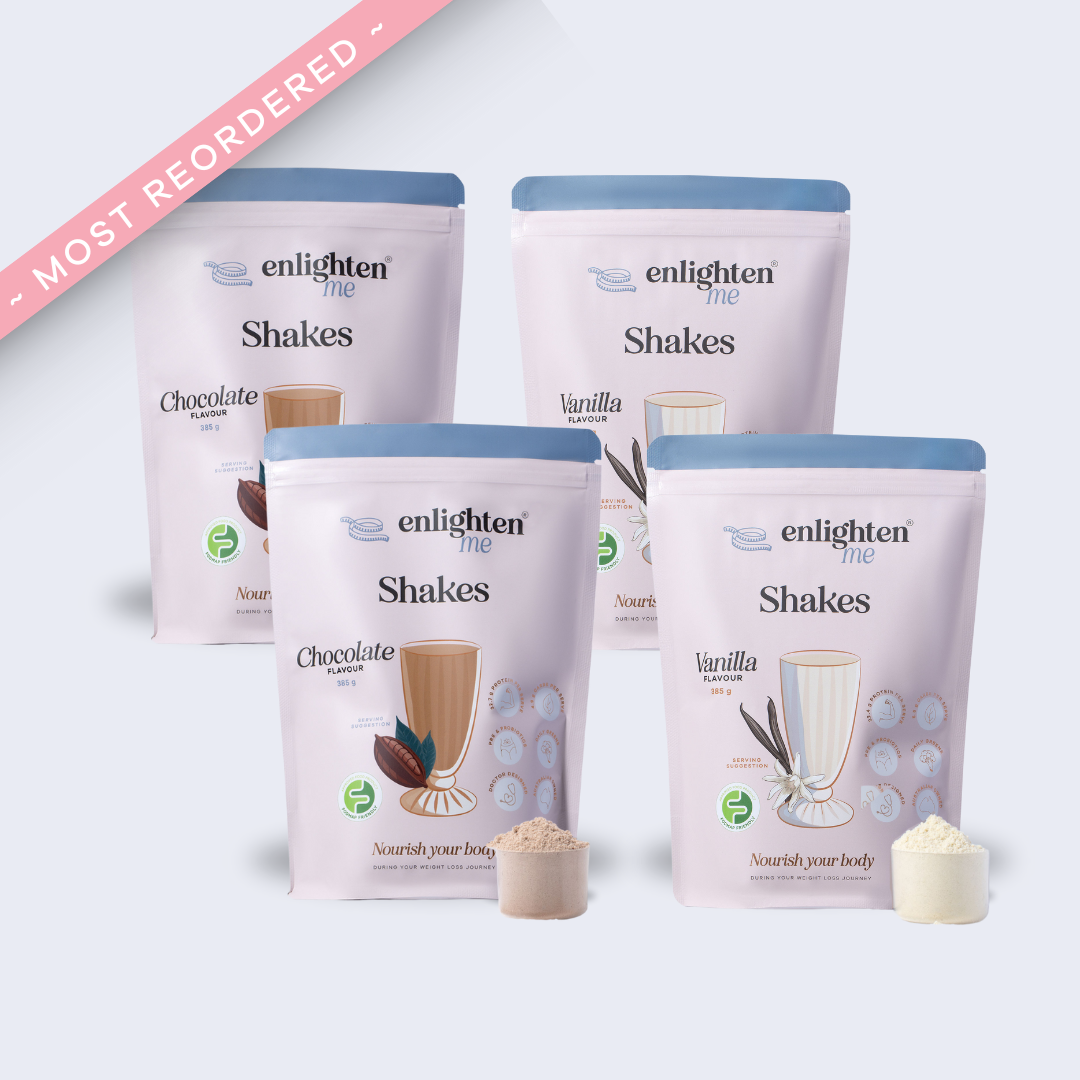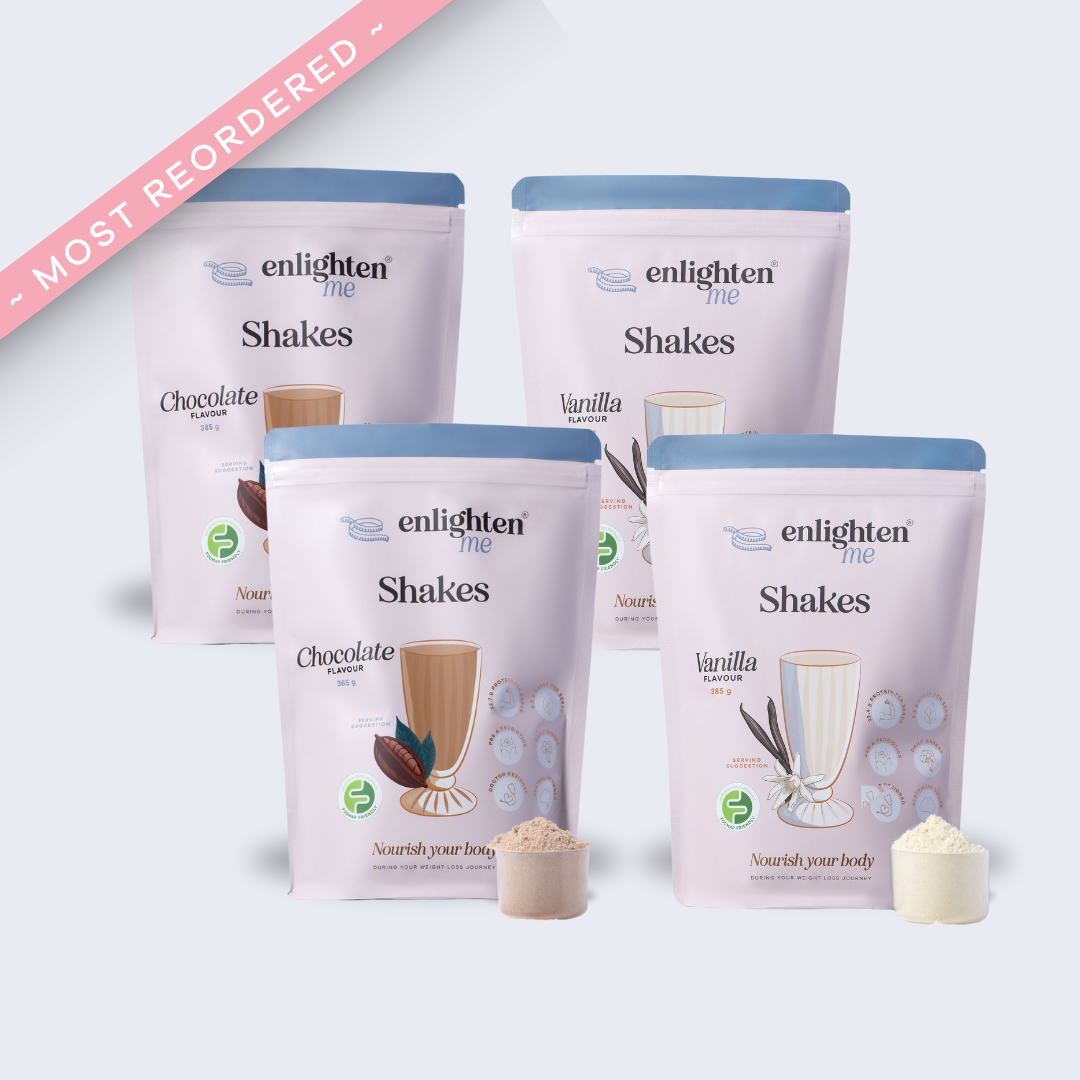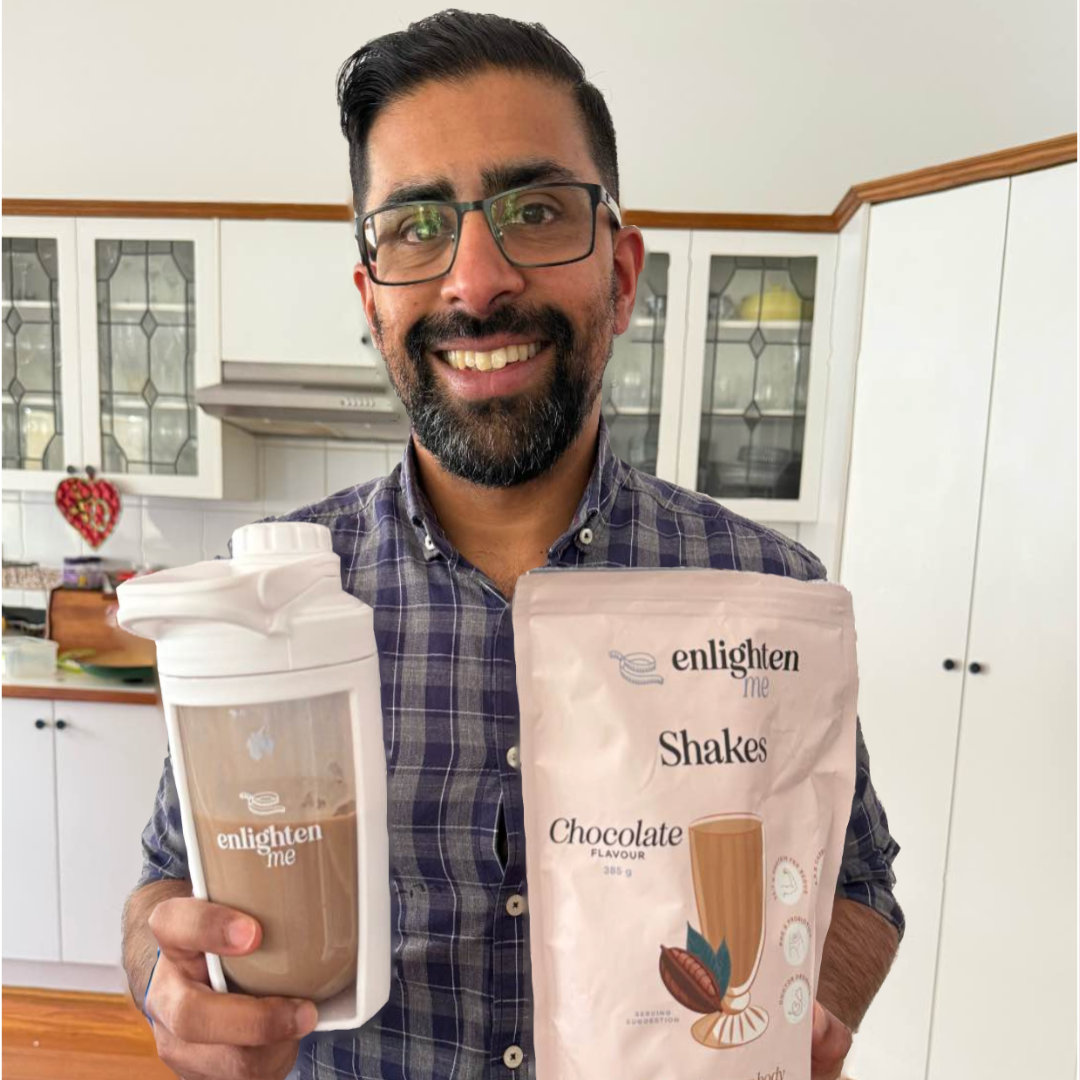
Are You Getting Enough Protein? Here's How Much You Actually Need
Share
Whether you’re trying to lose weight, build lean mass, or simply navigate the changes of midlife, one thing matters more than most people realise: adequate protein.
While carbohydrates and fats often take the spotlight, it's protein that does the heavy lifting when it comes to managing appetite, supporting metabolism, and maintaining lean muscle - especially during weight loss or hormonal transitions like perimenopause.
Yet many people, particularly women, still don’t get enough.
Here’s your practical guide to understanding how much protein you need and how to hit your target - without the frustration of logging every gram or turning every meal into maths.
Why Protein Is So Important
Protein plays a powerful role in health, energy, and body composition. Here's what the science says:
-
It reduces cravings
It boosts satiety hormones and helps you feel fuller for longer, reducing that evening snack attack. -
Supports fat loss while preserving muscle
A higher protein intake helps you lose fat, not muscle - critical for long-term success. -
Builds and maintains lean muscle
Essential if you're strength training, ageing, or simply want better tone and posture. -
Keeps that metabolism firing
Protein has a higher thermic effect - your body burns more energy digesting it than it does for carbs or fat. -
Aids recovery and repair
It fuels immune function, skin renewal, nail and hair health, and helps support your body after exercise or illness. -
Naturally regulates intake
The “protein leverage hypothesis” suggests we’re biologically wired to keep eating until our protein needs are met—so when your diet is too low in protein, you may overeat without even realising it.
So, How Much Protein Do You Need?
The truth is, protein needs vary from person to person. When we work with individuals in the Enlighten Me medically supervised weight loss program, we take a closer look at their daily intake, medical conditions, medications and activity levels before recommending a target. Health professionals can use different formulas depending on the context - and adjustments are often made over time based on progress and goals.
That said, for a quick general reference, the following table offers a simple guide based on your current body weight. It’s a useful place to start, especially for those looking to lose weight, optimise lean mass, manage hormonal changes, or support their metabolism with resistance training.

Do I Need to Weigh Everything?
Simple is best. Some people find tracking helpful at the beginning to build awareness. But for many, using simple visual cues—like a palm-sized portion of protein per meal—can work just as well. High protein meal replacement shakes can also make it easier to reach your target when you don't feel like cooking, yet need something nutritionally balanced..
Everyday Protein Guide: What 25–30g Looks Like
Here are some common foods and how much protein they deliver:
- 2 large eggs = 14g
- Palm-sized piece of chicken, beef or fish (85g) = 20–30g
- Tofu (100g) = 12g
- Can of tuna (95g) = 19g
- High-protein yoghurt (170g) = 15–20g
- Handful of nuts (30g) = 7g
- 2 slices of wholegrain bread = 8g
- Half cup of legumes = 7g
- Cheese (35g) = 9g
- The Enlighten Me Shakes = 32g
Bonus Tips for Reaching Your Target
- Prioritise protein at every meal, especially breakfast.
- Aim for the higher end of your range if you’re in a calorie deficit or strength training.
- Be mindful of “protein” snacks and convenience foods. Many products marketed as high-protein—such as protein cookies, donuts, muffins, balls or pancakes—can appear helpful but are often primarily high in carbohydrates and ultra-processed ingredients. While they may contribute to your intake, they’re best seen as occasional treats, not reliable protein sources.
Final Thoughts
Protein isn’t just a muscle-builder—it’s a metabolism supporter, appetite regulator, and powerful ally in long-term health and weight management.
This guide is a starting point. For tailored advice, especially if you’re navigating medical conditions or using weight loss medication, chat with your healthcare professional.
And if you’re looking for a clean, high-protein meal option that’s low in carbs, gentle on the gut, and designed with real-world needs in mind, the Enlighten Me Shakes may be a smart addition to your routine.












